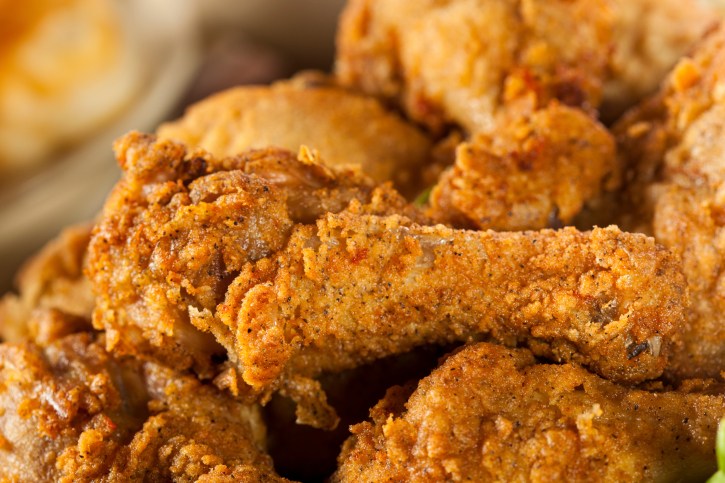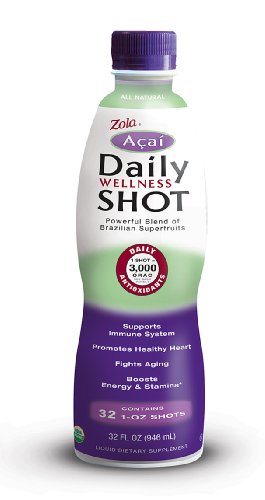Nutrition Guidance: Letting Chips Fall Where They May
There was a feature article in a recent (Jan. 10, 2012) USA Today, generally very complimentary of a nutrition guidance system I helped develop, now helping some 20 million or more shoppers each week in some 1,600 supermarkets from coast to coast. But I'm not here to enjoy the view of this coverage from altitude; I want to chip away at the particulars.
I admit it: I occasionally eat a chip. Usually, when I do so, it's a whole-grain corn chip, baked or fried in canola oil, lightly salted. Sometimes it's a brightly-colored root vegetable chip. On very rare occasion (e.g., with my sandwich while watching the Super Bowl), it might be a potato chip -- either mixed in with other root vegetables, or similarly fried in canola oil and lightly salted.
Chips are by no means a mainstay of my diet, which is, by and large, optimal. I eat food, not too much, mostly plants. I practice what I preach, and -- thank goodness -- have the biometrics, anthropometrics, and overall health status to show for it.
Yes, my friends -- I think decent human beings might occasionally eat a chip. I think that healthy human beings might occasionally eat a chip. I think they do.
But perhaps not just any chip!
I would not eat just any chip. There are lots of chips from which to choose. Some, famously, are of the "betcha' can't eat just one!" variety. Those are not for me (although, again I confess, it's hard to eat just one of any chip!). Some, shockingly, have sugar at the end of a long ingredient list (apparently, some chips are sprayed lightly with just enough sugar to help reinforce that inability to eat only one, or 100!). Some have a lot of salt. Some have almost no fiber.
On those occasions when I eat chips -- equidistant between often and never -- I eat chips I can love that are most likely to love me back. Chips with a short ingredient list, rarely longer than three items (e.g., whole grain corn, canola oil, salt). Chips that are almost invariably less concentrated in sodium than, say, Cheerios cereal, by quite a wide margin. Chips that provide a generous dose of fiber, native to the whole grain.
I confess, with no shame, that I occasionally eat chips -- and when I do, I care about eating the best chips I can find. And yes, I think that choosing better chips matters. It means getting healthful, unsaturated oil -- monounsaturated, and even omega-3 -- instead of less healthful alternatives. It means avoiding an excess of sodium (many chips with short, simple ingredient lists are less concentrated in sodium than is recommended for the diet overall; in other words, the "right" chip choice can help pull your average sodium intake for the day down, not up!). It means adding to one's daily intake of fiber -- which is an area where most Americans could use some help.
But more importantly than chips, per se, is the general principle: Which specific product one chooses in a wide variety of food categories matters. In fact, it matters enough that when the effects of food choices across a wide array of categories are added up, they can mean the difference between dying prematurely, or not. They can mean the difference between keeping, or losing, 115 lbs. you don't want. That's a hefty and meaningful difference.
I know of few, if any, nutrition professionals who would not consider bread a real "food." Yet the choices in the bread aisle are staggering. Some are extremely wholesome -- providing whole grain that's good for you and little, if anything, that's bad. Some, however, are delivery vehicles for refined starch, excess sodium, unhealthy oils and/or sugar.
The difference might not warrant my consideration, or yours, if the questionable bread choices sported a skull and crossbones on the bag. They do not! Instead, almost every packaged item in a food supply of nearly 800,000 items (incredible, isn't it?) uses the prime real estate of its packaging for marketing messages. A bread will sport amber waves of grain on its packaging, and shout out "multigrain" -- and never specify that only a rounding-error portion of it all is whole-grain. You are left to figure that out.
You are also left to figure out whether healthy oil but more sodium is better or worse than more fiber but added sugar, or no added sugar but less fiber, or more whole grain but also more sodium, or multigrain but less fiber, or...
The task handed to a health-conscious shopper is quite analogous to a doctor handing you your LFTs, chem7, CBC, lipid panel, CRP, HgbA1c, biometrics, ECG, etc. -- and letting you figure out whether or not you are healthy. It's a bit easier for a loaf of bread -- but, alas, still far from easy in many cases. My wife, who is an expert cook, mother of five, extremely health-conscious, married to me, and has a Ph.D in neuroscience from Princeton University -- finds it challenging. The prosecution rests.
And of course it's not just about bread, any more than it's just about chips. Breakfast cereals vary astonishingly in nutritional quality, across a wide array of ingredient and nutrient properties, and almost every one of them has health-related messaging on the front of the pack. (e.g., "Fortified with essential vitamins and minerals," "part of a complete breakfast!" Perhaps so -- but what part?). The same is true of dairy products. For those who eat meat, there is substantial variation in nutrition among meats, cuts of poultry, fish and seafood -- none of which is necessarily obvious at a glance.
There is considerable variation in nutritional quality among nuts and seeds, based on both the variety and if/how they are processed. There is similar variation for dried fruit, canned fruit and canned vegetables. There is incredible variation in the nutritional characteristics of pasta sauce -- some of which is mostly tomato, while some contains more added sugar than ice cream topping. The jars look all but identical. Much the same is true of salad dressings.
Across an expanse of food choices from soups to nuts, there are plenty of real "foods" mixed in with plenty of food impostors. It can be very difficult to tell them apart. Some very clever people on Madison Avenue are very well-paid to help ensure that you can't.
But it's important to do so. Unless you live entirely on foods with a one-word ingredient list (e.g., broccoli; bananas; walnuts), it is very important to make such distinctions whenever choosing a food in a bag, box, bottle, jar or can.
Getting such choices wrong -- and again, there are very powerful forces in play to make it likely you will -- means getting far more trans fat, added sugar, sodium, saturated fat, chemicals, refined starch and calories than you should. It means getting far too little fiber, whole grain, omega-3 oil, monounsaturated fat, antioxidants, etc. Getting such choices right consistently can mean losing over 100 lbs. simply by trading up your groceries. It can mean more years in life, and more life in years.
I think all this matters. I live in a world where decent human beings do, occasionally, eat chips -- and certainly eat bread, yogurt, nuts and pasta sauce. I think the provision of totally unbiased, of-by-and-for-public health, independent of the food industry and correlated with health outcomes nutrition guidance -- is a good thing. I think an evidence-based system that enables a busy shopper to tell at a glance which choice in a given category is more nutritious overall than another, is a good thing. I think having someone other than the fox guard the henhouse... is a good thing.
So, it seems, do many shoppers. For these reasons, I have devoted years of my life, and worked with some of the true luminaries in nutrition and public health, to help develop just such a guidance system.
Overwhelmingly, those who experience it say thank you -- and where have you been all my life? But not everyone. Some prominent nutritionists -- notably my friend and colleague Marion Nestle, as recently quoted in USA Today -- have nary a kind word to say.
Dr. Nestle has been perfectly consistent in this regard -- allowing neither anecdote nor data to change her views. People should simply eat real foods.
But I can't help but wonder -- is she saying that she has never eaten a chip? Or anything else, for that matter, in a package? Do yogurt, bread, nuts, dried fruits, canned vegetables -- not meet the Nestle criteria for real foods?
If not, Dr. Nestle lives -- and eats -- in a very different world than I. (At least most of the time; I have very much enjoyed the several meals we have shared! No, I won't tell you what we ate...) But if these DO qualify as foods, then there are choices to be made. Choices that could, should -- and do -- benefit from objective, evidence-based guidance. If the ability to lose over 100 lbs. just by trading up to better choices when shopping does not count as meaningful in the world of nutrition and health promotion -- I haven't a clue what would.
I live in a world where decent people occasionally eat chips. So I say it's a good thing to offer the best possible nutrition guidance -- and let the chips fall where they may. I can't figure out why some of my colleagues seem to have a chip... on their shoulder.
-fin
For more by David Katz, M.D., click here.
For more on diet and nutrition, click here.
for more on weight loss, click here.
Dr. David L. Katz; www.davidkatzmd.com
www.turnthetidefoundation.org
Related reading:
http://www.huffingtonpost.com/david-katz-md/we-all-need-a-little-nutrition-guidance_b_804545.html
http://www.huffingtonpost.com/david-katz-md/healthy-food-costs-more--a-myth_b_831608.html
http://www.huffingtonpost.com/david-katz-md/holistic-nutrition_b_842627.html
http://www.huffingtonpost.com/david-katz-md/healthy-food-cost_b_920107.html
http://www.huffingtonpost.com/david-katz-md/food-stamps-healthy-food_b_984684.html
http://www.huffingtonpost.com/david-katz-md/iom-nutrition-guideance_b_1026221.html
-
Influenza (flu) vs. pneumonia, differences in symptoms, causes, and treatment
Influenza (flu) and pneumonia at first glance may appear the s
-
3 Questions to Ask Yourself for Successful Weight Loss
Many people say that they are not happy
-
Fit & Fabulous Winner Jennifer Lee Gilbert: In It To Win It
For Fit & Fabulous winner Jennifer Lee Gilbert,livi
-
Sixteen Ways To Speed Up Your Fat Burning
Eat less ... lose weight?!? Heres the ot
-
How To Lose Weight Without A Cattle Prod
If youre not sure what a cattle prod is,
-
Body Image – Reality Or Facade?
Your body image means a great deal to you and is probably on the top o
- DON'T MISS
- Fat Future
- Lavell Crawford: “I Gave Away $10,000 Worth Of Clothes”
- Body Building Workout Techniques
- Fast Weight Loss – Can I Change Your Mind ?
- Atkins Grapefruit Diet
- Lose Fat Conveniently: Start Snacking During The Day
- Weight Loss Facts That May Surprise You
- Weight Loss Problems - Stays Lost Forever And Ever
- How To Build Muscle Quickly
- Lose Weight - The One and Only Way




